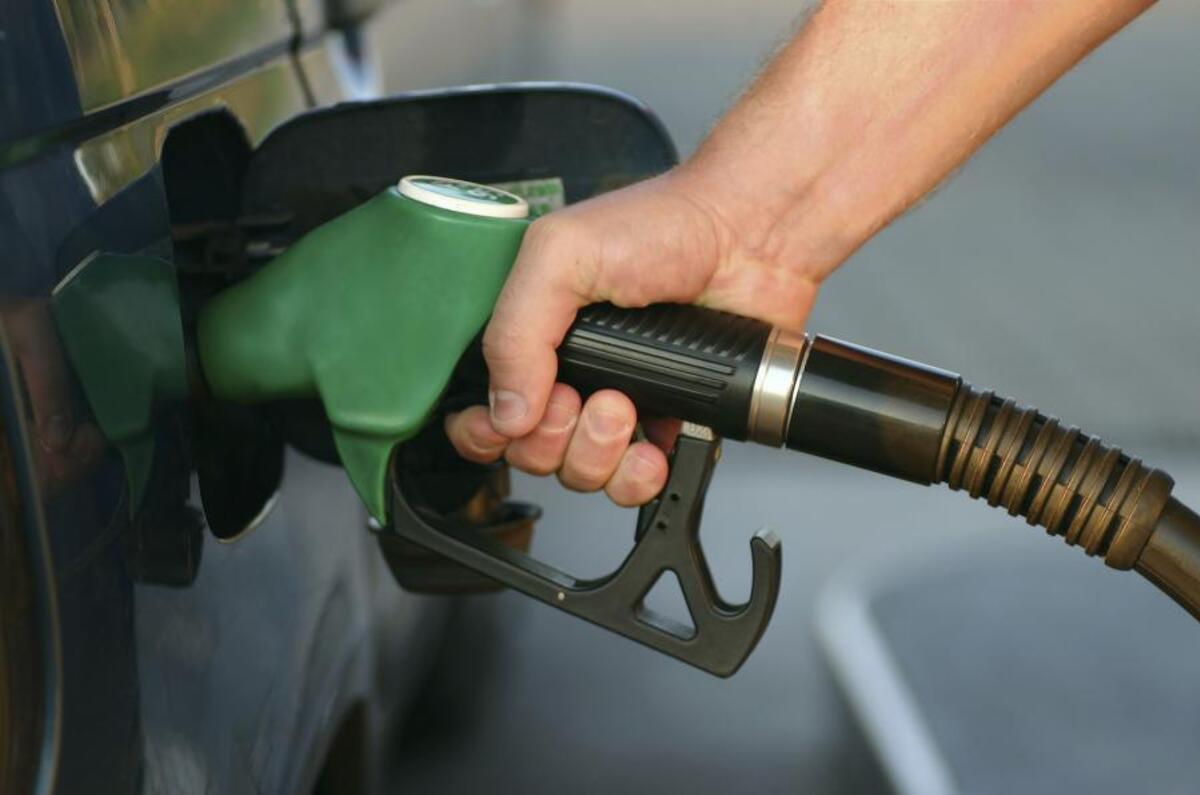The price of petrol increased by more than 10p per litre in May, despite the government’s 5p-a-litre fuel duty cut brought in at the end of March.
The price of a litre of unleaded rose from 162.87p at the start of the month to 174.02p by the end, data from the RAC’s Fuel Watch shows.
This is second biggest rise on record, after an increase in March, when a litre of petrol jumped by 11.61p from 151.67p to 163.28p.
Diesel prices also climbed to new heights in May, with a litre going up to 183p, a hike of more than 5p.
This took the cost of the average full tank of diesel above £100 for the first time, the data revealed. A full tank of petrol also hit a record cost of £95.
The RAC said that since Russia invaded Ukraine on 24 February, the price of petrol has gone up 24p a litre and diesel 30p a litre.
“Both of these figures would have been even higher had the government not cut fuel duty,” RAC fuel spokesman Simon Williams said.
The increases have been driven by the rise in the wholesale price of oil, which has gone from $106.07 (£85.07) a barrel to a late-May high of $124.45 (£99.79) – a 17% increase.
Williams added: “While it’s hard to imagine prices getting much worse, the wholesale price of petrol has now gone above diesel, which spells yet more bad news at the pumps in the coming weeks.”
Drivers of electric vehicles have also been dramatically impacted by soaring energy costs. Earlier this week, it was revealed that the cost of using an ultra-rapid EV charger has increased by almost 50% in just eight months, a 16.76p per kWh increase.
As well as this, the price of using a rapid charger has risen by a fifth, from £18.81 to £22.81.








Join the debate
Add your comment
prices rise - as a result of worldwide aspects.
You can blame brexit - but this has nothing to do with oil embargos imposed on Russia or Iran (and to a certain extent Venezuala) - the expansion of private car ownership in previously third world countries, and other economic demands therein - or the politics of Opec.
As regards the UK, if sales/demand fall, whilst forecourt costs (electricity / wages / interest costs) increase then obviously to cover costs or maintain profits prices will rise.
We don't agree with it - we don't like it BUT it is basic economic reality - not Brexit - I wonder how those attributing it to brexit would have reacted when we left the gold peg standard!
Flat Brexiter - Someone who refuses to accept the damage that Brexit has done to the UK.
Nobody is saying that all the other factors hasn't affected Britain too, but it's worse in Britain because of Brexit. As said below, when you devalue your currency you need more of it to buy international goods. That's what's happened in the UK.
The other way to look at it is that Boris's Brexit means you've taken a pay cut. Did you enjoy having your pay reduced?
Doesn't help that we voted to destroy the value of our currency.
I fear that unless we can get some strength back in our currency, this pain is here to stay.
Oil prices at this level are nothing new. They were higher in 2008, and at similar levels as recently as 2013,14. What is new to us is having a worthless currency, when oil is priced in dollars... You'd have to go back to the 80's to find the pound so weak against the dollar.
But I suppose it suits the government to keep the focus on the fault being with the oil price.. suits their agenda.
I'm glad it's not just myself that noticed how much the pound has slid to the dollar, all because of Brexit.
If you voted for Brexit you've no right to complain about rising prices. It's what you wanted.
If it's all down to Brexit as you like to say, why in the 80s was the pound so low against the dollar?
Everyone knows that Brexit is a contributing factor, it's your assertion that it's the overiding cause that I find odd. That there was going to be an unstable pound after Brexit as everything sorted itself out to the new order, was a given and obvious outcome of the Brexit vote. Give it time and the currency will stabilise no doubt. Hopefully the other factors causing the cost of living crisis will also settle and stabilise very soon as well.
Just because we've left the EU, doesn't mean we are circling the drain.
It seems pretty clear it is the overriding cause. I mean the value of the pound dropped overnight after we voted to leave, and it has stayed surpressed for the 6 years since. You say give it time for it to stabilise... It sort of has stabilised - its been stable and low for 6 years now! How long are we supposed to wait for the promised benefits?